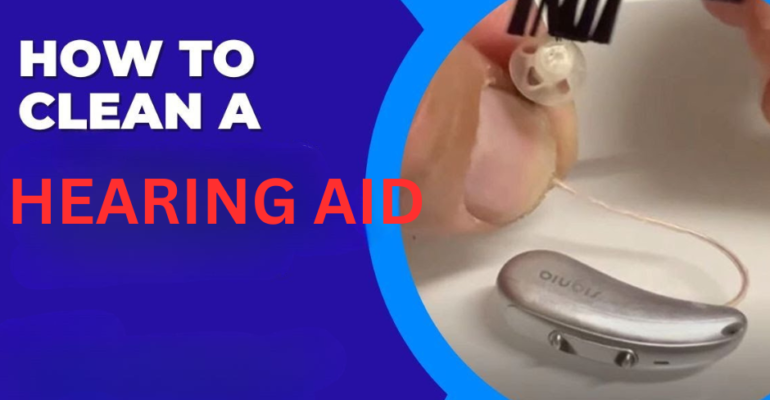How to Properly Care for Your Hearing Aids?
July 30, 2024 2024-07-30 11:20How to Properly Care for Your Hearing Aids?

How to Properly Care for Your Hearing Aids?
Hearing aids are essential devices for individuals with hearing loss, providing significant improvements in communication and quality of life. Proper care and maintenance are crucial for ensuring the longevity and optimal performance of your hearing aids. This comprehensive guide will walk you through everything you need to know about caring for your hearing aids, from cleaning and storage to troubleshooting and professional maintenance.
The Importance of Proper Care
Taking care of your hearing aids is vital for several reasons:
- Longevity: Proper maintenance can extend the life.
- Performance: Regular cleaning and care ensure that your hearing aids function at their best.
- Cost Savings: Avoiding damage through proper care can save you money on repairs and replacements.
- Hygiene: Keeping your hearing aids clean prevents infections and discomfort.
Daily Cleaning Routine
A daily cleaning routine is essential for maintaining your hearing aids. Here’s how you can clean your hearing aids effectively:
- Wash Your Hands:
- Always wash your hands thoroughly before handling it to prevent transferring dirt or oils to the devices.
- Inspect Your Hearing Aids:
- Examine it for any visible debris or damage. Check the microphone, sound outlet, and battery compartment.
- Use a Soft, Dry Cloth:
- Wipe the entire surface of device with a soft, dry cloth to remove any dirt or oils.
- Clean the Earpiece:
- If device have earmolds, remove them and clean them separately with mild soap and water. Make sure they are completely dry before reattaching them.
- For in-the-ear (ITE) hearing aids, use a soft brush or wax pick to clean the sound outlet and vent.
- Avoid Water and Solvents:
- Never use water, alcohol, or other solvents to clean , as these can damage the electronics.
Weekly Maintenance
In addition to daily cleaning, a weekly maintenance routine can help keep in top condition:
- Deep Clean the Earmolds:
- Remove the earmolds and soak them in warm, soapy water. Use a soft brush to remove any earwax or debris. Rinse thoroughly and let them dry completely before reattaching them.
- Check for Earwax Buildup:
- Use a wax pick or loop to gently remove any earwax buildup from the sound outlet and vents.
- Replace Wax Guards:
- If it is having wax guards, check them weekly and replace them if they are clogged or dirty.
Monthly Maintenance
Monthly maintenance tasks are aimed at ensuring the overall health and performance :
- Change Batteries:
- If you use disposable batteries, change them regularly to avoid leakage or corrosion. Follow the manufacturer’s recommendations for battery life and replacement.
- Clean Battery Contacts:
- Use a dry cotton swab to clean the battery contacts in it to ensure a good connection.
- Inspect for Damage:
- Check your device for any signs of wear or damage. Look for cracks, loose components, or corrosion.
- Test Functionality:
- Test the functionality of your hearing aids by listening to different sounds and adjusting the volume. If you notice any issues, consult your audiologist.
Professional Maintenance
Regular check-ups with your audiologist are essential for keeping your aids in optimal condition:
- Schedule Regular Appointments:
- Visit your audiologist at least once a year for a thorough check-up and cleaning. They can also make any necessary adjustments to it.
- Professional Cleaning:
- Audiologists have specialized tools and equipment for cleaning aids more thoroughly than you can at home.
- Software Updates:
- Your audiologist can update the software of it to ensure they are functioning with the latest features and improvements.
Conclusion
Proper care and maintenance of your aids are essential for ensuring their longevity, performance, and hygiene. By following a regular cleaning routine, performing weekly and monthly maintenance, and storing your hearing aids correctly, you can keep them in optimal condition. Regular check-ups with your audiologist and professional maintenance also play a crucial role in extending the life of your hearing aids. By taking these steps, you can enjoy better hearing and an improved quality of life.



